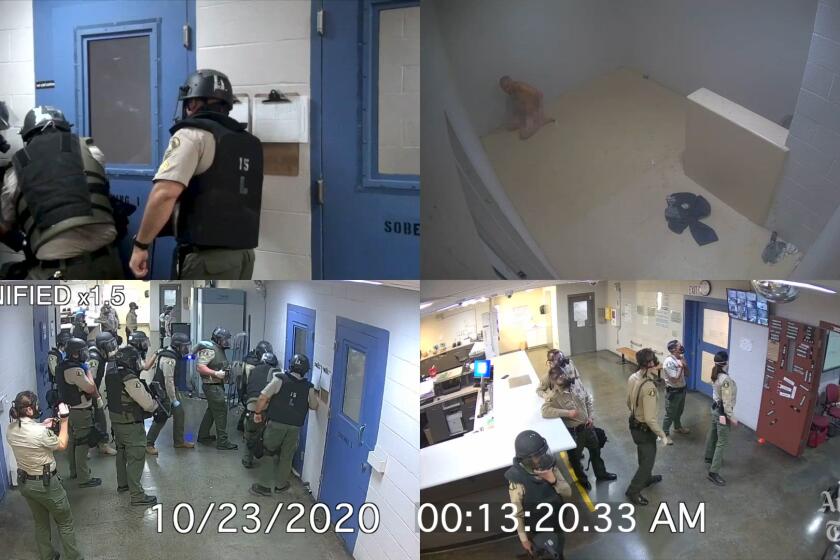Tests Into Farmworker’s Death to Continue 3 Weeks
A Jamul farmer may have illegally sprayed a highly toxic pesticide on a field where a Mexican farm worker collapsed and later died, but authorities said it will be mid-September before they can determine whether the pesticide caused the farm worker’s death.
County agriculture officials said the pesticide Monitor, which was sprayed at Mirada Farms before workers entered the fields Aug. 5, is subject to a state law governing the most highly toxic pesticides. The law prohibits employers from allowing “substantial and prolonged body contact with the treated plants” within 24 hours of the spraying.
Juan Chabolla Casillas collapsed in mid-afternoon after starting work at 8 a.m., an hour after two fields were sprayed. In the field sprayed with Monitor, workers were putting down stakes in a field of young tomato plants, officials said. In a field sprayed with a less toxic chemical, workers were removing overripe tomatoes.
Chabolla had complained of dizziness and nausea, which authorities said were similar to symptoms associated with Monitor poisoning. But they pointed out that no other workers at the farm had been affected.
County Agricultural Commissioner Kathleen Thuner said her agency and the state Department of Food and Agriculture had conducted interviews with Mexican workers at the farm to determine how much contact Chabolla had with the sprayed plants. She said English translations of the interviews had not been completed.
But Marion Moses, director of the United Farm Workers Union medical clinic in Keene, Calif., said at least one witness had seen Chabolla working with rolled-up sleeves and without gloves in the fields. “Do you think somebody’s going to stake tomatoes without touching the plants?” she said. “I think it’s going to be difficult to say that pesticides didn’t have something to do with (Chabolla’s death).”
Thuner said that although the workers’ interviews would help determine whether the farm’s owner, Fred Hatashita, violated the law by exposing the workers to the toxic pesticide, the key in the investigation would be an analysis of tissue samples from Chabolla’s body to identify the cause of death.
That analysis, expected to take until at least mid-September, was complicated by Hatashita’s decision to take Chabolla to a Tijuana hospital when he collapsed. Hatashita did not call for U.S. medical aid and did not report Chabolla’s death to U.S. authorities.
Chabolla was embalmed in Tijuana, where a Mexican autopsy gave the cause of death as asphyxiation due to vomiting. U.S. authorities were alerted to the death by the UFW and arranged for Chabolla’s body to be returned to San Diego six days after he died.
Hatashita, who could not be reached for comment Friday, said earlier he had taken Chabolla to Tijuana at the request of his co-workers. But another farm worker, Jesus Sanchez Osorio, who rode with Chabolla to Mexico, said Chabolla died in the field and that workers wanted to call a U.S. doctor.
Hatashita also said it never occurred to him that pesticides were involved in Chabolla’s collapse, because no other workers were affected.
Thuner said pesticides could not be ruled out at this stage of the investigation. “There are individual responses to all chemicals, including sugar,” she said.
More to Read
Start your day right
Sign up for Essential California for news, features and recommendations from the L.A. Times and beyond in your inbox six days a week.
You may occasionally receive promotional content from the Los Angeles Times.






